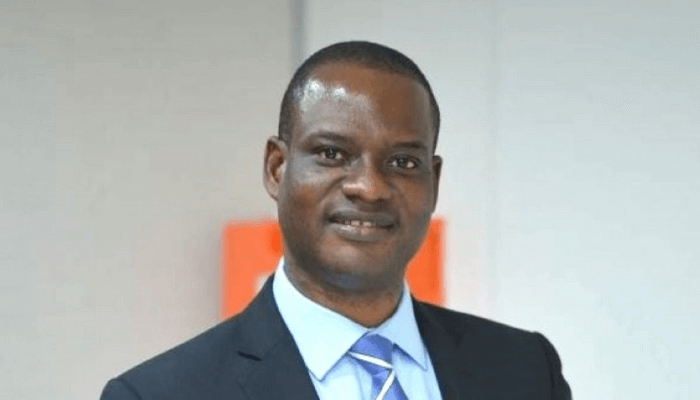Tax reforms leave no escape route for evaders
Nigeria’s tax evaders will have a hard time when the ongoing fiscal reforms are concluded.
These reforms will ensure equity and protect poor and vulnerable citizens, according to Taiwo Oyedele, chairman, Presidential Fiscal Policy and Tax Reforms Committee.
In an exclusive interview with BusinessDay, Oyedele said under the new reforms, intelligence and vital data of all eligible tax payers will be linked within the Nigerian economy using the National Identity Number (NIN).
“Based on the way we are designing the system, we are connecting the intelligence within the whole economy. What you do on your phone with your payment cards, your bank accounts, with imports and exports, what you do when you travel abroad will be tracked and linked. If you have an investment account, shares in the stock market, you build a house, connect to electricity, that’s an intelligence that will fish you out,” he explained, while speaking on how government plans to drive compliance.
“So, there’s actually nothing you can do that the system cannot track, even in the villages. When, for example, I say my name is Taiwo Oyedele and all the income I made last year is only N200, 000, all we need to do is input Taiwo in the system and we will get all the information about your spending in the period.”
Oyedele said that this is the system used across the world, wondering why Nigeria would be any different.
“That is where the revenues will come from, that is where the compliance will come from, and that is how we will fix the economy,” the tax czar noted.
Read also: Why Nigeria’s tax reform bill could be a game changer for economy
Nigeria’s tax-to-GDP ratio, which is estimated at 10 percent, is one of the lowest globally. Ghana’s tax-to-GDP ratio is estimated at 14 percent. Rwanda is currently at 24 percent, according to Knoema, a data platform. South Africa’s is 23.3 percent, while Kenya’s is 14.3 percent, according to the World Bank. But Nigeria is lagging, through less than 30 percent of eligible citizens reportedly pay tax.
Authorities said in 2017 that only 214 Nigerians paid taxes of N20 million and above per annum and all of them were based in Lagos state.
The federal government had in the past implemented a number of ambitious tax reforms, including the Voluntary Assets and Income Declaration Scheme (VAIDS), an amnesty programme which encouraged tax defaulters to declare and pay up their tax liabilities and in turn receive government pardon.
However, challenges of tax evasion and avoidance stymied the initiative, robbing the economy of its wealth.
The Oyedele committee had earlier disclosed that Nigeria loses about N20 trillion (about $26 billion) annually to gaps existing within its tax system, including evasion and certain inefficiencies in collection.
Oyedele told BusinessDay that tax avoidance and evasion are no longer acceptable and that the new strategy would involve digitisation and application of technologies.
He explained that the new tax bills have made provisions for tracking mechanisms that will connect an individual’s vital information to the National Identity Number.
The bills, which are currently before the National Assembly, include: Nigeria Tax Bill, Nigeria Tax Administration Bill, Nigeria Revenue Service Establishment Bill and the Joint Revenue Board Establishment Bill.
Read also: FG’s revenue jumps 76% from taxes, oil
These bills, according to Oyedele, seek to address various issues including multiplicity of taxes, fragmentation of revenue administration, excessive tax burden on most vulnerable citizens and small businesses, and the use of technology as well.
He said with the reforms, the government aims to ensure that only those eligible are made to pay taxes. The system will aid voluntary compliance, which has eluded the system for long.
He acknowledged that getting to a point where everybody will voluntarily pay taxes will be difficult, but there is a need to create a system that just encourages compliance while protecting those at the lower rung of the ladder.
“If I am earning N60,000 a month, that’s N2,000 a day. I will pay for transport, feed myself at work, my kids when I get home. After that, we will buy pencils and erasers for our children to go to school, pay electricity bill, rent, among others.
“Even if you ask me to pay N200 as tax, you are asking for the impossible because I am in debt before the end of the month. It is unfair to treat your most vulnerable people like that. So, once you ensure that those people that cannot pay are taken out, it means that everybody else you are asking to pay has the ability. This is very important and that is number one step.
“Number two step is that for these people that have the ability to pay, you have to design a system that says to them that if they lie about their affairs, the authorities will find out and because they will find out, there will be consequences.
“It’s not like people who pay taxes in the US and Europe are from Mars or Jupiter. It’s because they know the system will find out. In Nigeria, however, you can evade and the system will not know, which is what the reforms are trying to correct.”
Oyedele lamented that Nigeria currently has a 70 percent tax gap, which means that only 30 percent accurate collection is being recorded.
He further noted that these tax gaps are driven by poor compliance and policies which promote incessant waivers to tax payers.
To address these gaps, the tax czar said efforts are ongoing to review all incentive schemes, from pioneer status to free trade zone and import duty, to allow only reasonable incentives in the system.
He assured that issues fuelling distrust, dishonesty, apathy in the tax system and creating compliance gap will be addressed.
“Some of it is that people do not trust government. The government is not spending money for them, but we will address that.
“But on the other side, people should pay once we identify they are not the poorest people. By closing that gap, we can more than double Nigeria’s revenue in less than two years and drive development. That’s one big area we are working on.”








